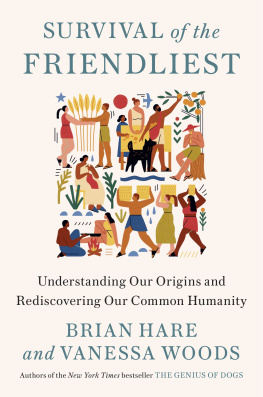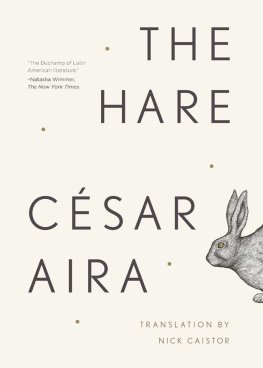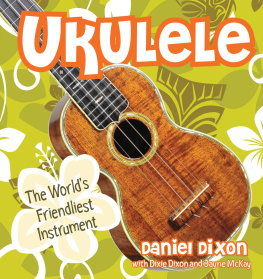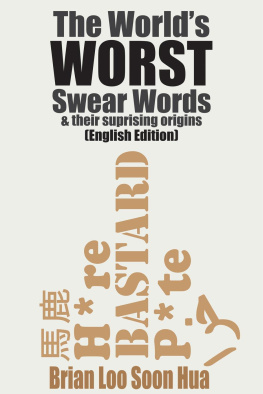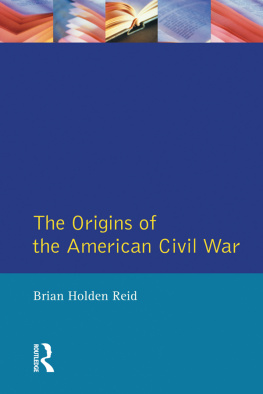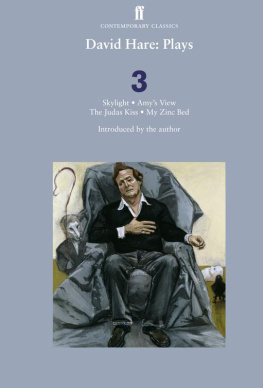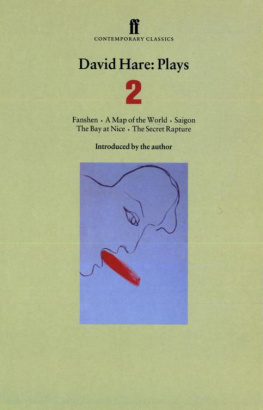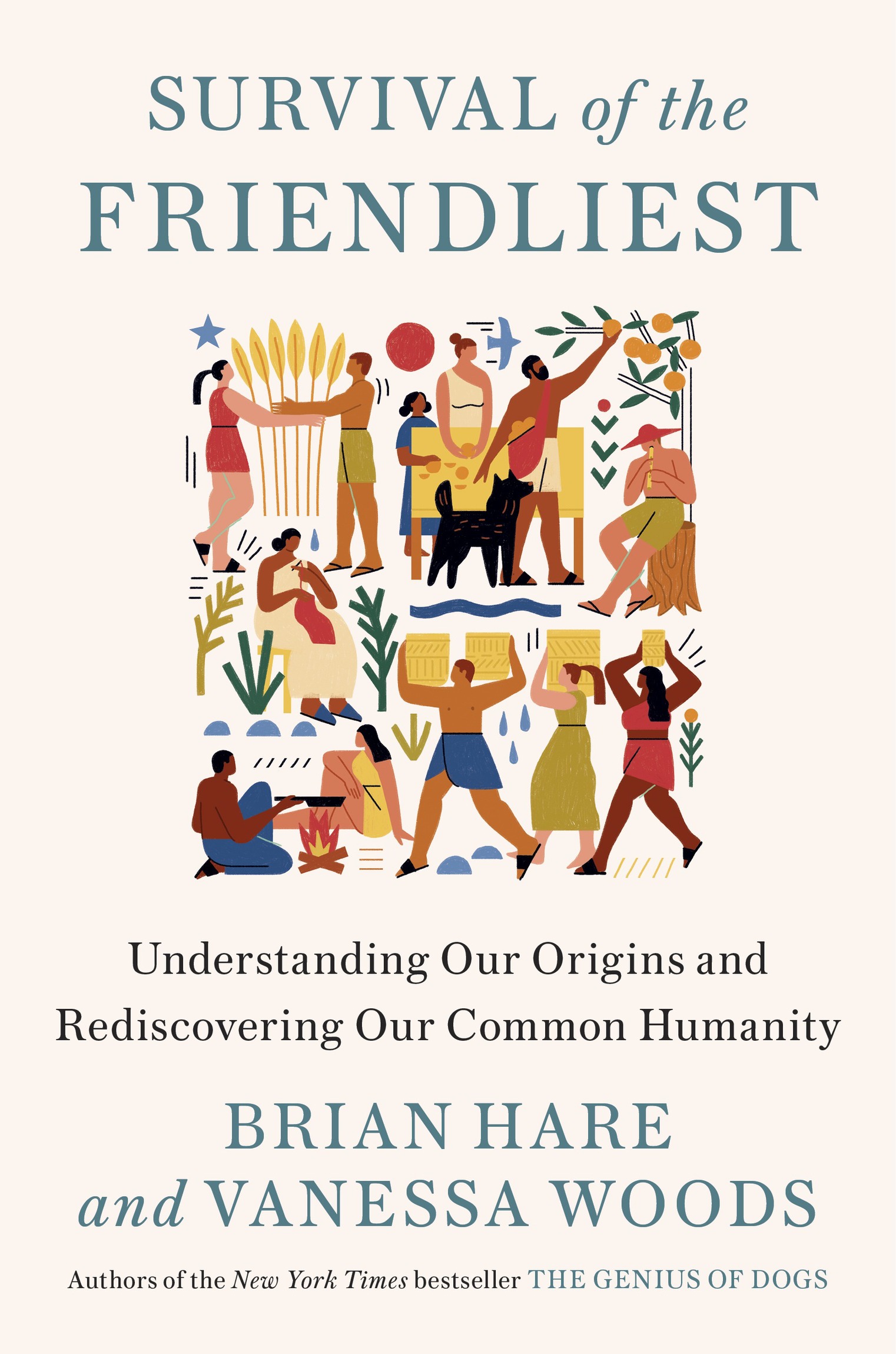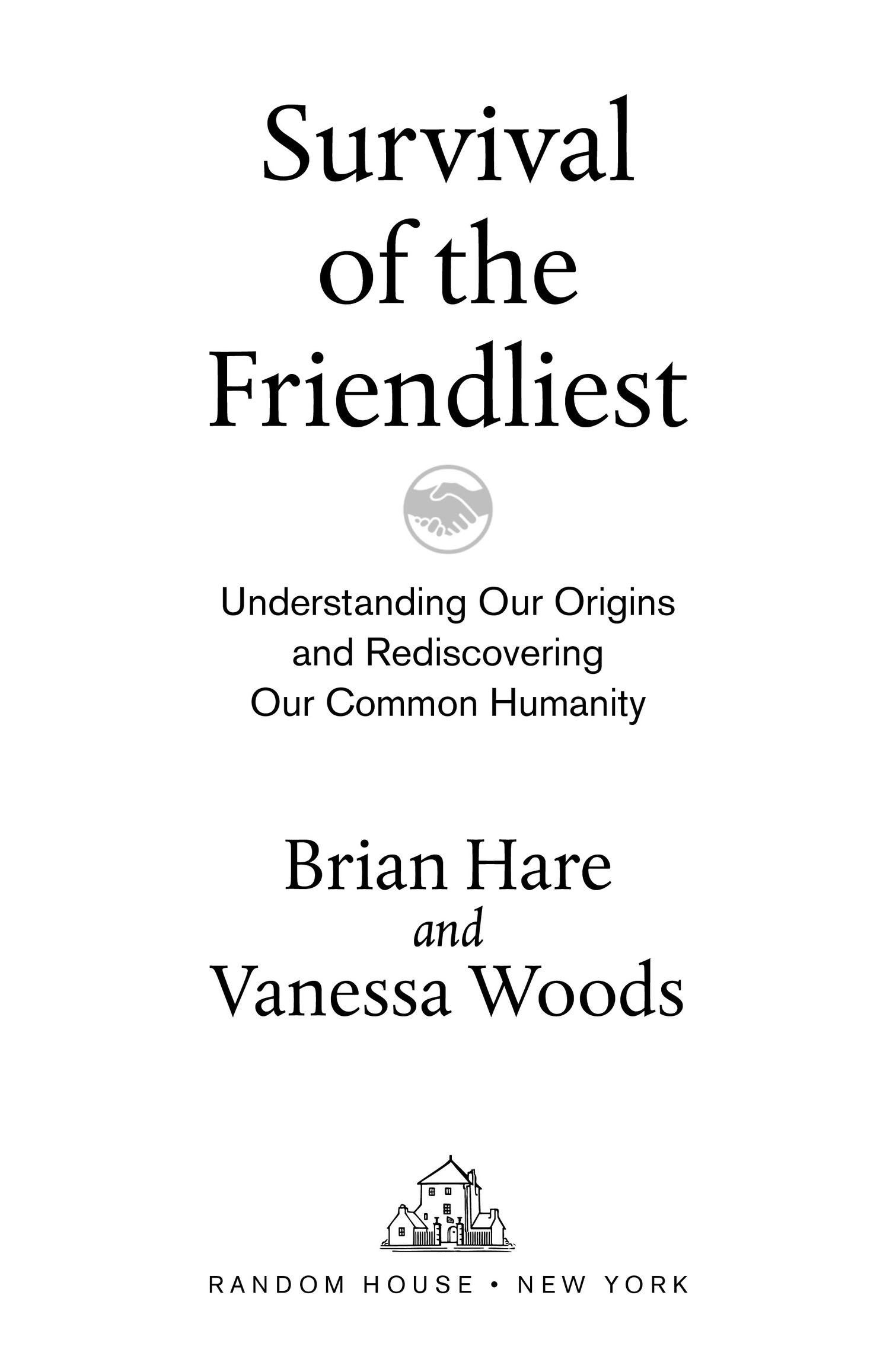All rights reserved.
Published in the United States by Random House, an imprint and division of Penguin Random House LLC, New York.
R ANDOM H OUSE and the H OUSE colophon are registered trademarks of Penguin Random House LLC.
Names: Hare, Brian, author. | Woods, Vanessa, author.
Title: Survival of the friendliest / Brian Hare and Vanessa Woods.
Description: First edition. | New York: Random House, [2020] | Includes bibliographical references and index. |
Identifiers: LCCN 2019049396 (print) | LCCN 2019049397 (ebook) | ISBN 9780399590665 (hardcover) | ISBN 9780399590672 (ebook)
Subjects: LCSH: Evolutionary psychology. | Social evolution. | Human evolution. | Friendship. | Empathy.
Classification: LCC BF698.95 H37 2020 (print) | LCC BF698.95 (ebook) | DDC 155.7dc23
Introduction
It was 1971, seventeen years after Brown v. Board of Education declared that segregation in schools was unconstitutional, and schools all over the country were still in turmoil.
Minority children often had to catch buses from one side of town to another, which meant they had to get up two hours earlier than white children. If they could afford to, white families sent their children to private schools, leaving only the poorest white children in the public school system. In the classroom, there was so much hostility between racial groups that children had very little energy for learning. Educators, parents, policy makers, civil rights activists, and social workers watched in dismay.
Carlos was in the fifth grade at a public school in Austin, Texas. English was his second language. He answered questions with a stammer, and when the other children mocked him, he stammered even more. He became withdrawn, rarely speaking at all.
Many social scientists had predicted that school desegregation would be an unqualified success. It was assumed that once all children were on an equal footing in the classroom, white children would leave school less racist, not just toward people of color in their schools, but toward those they encountered throughout their lives. Minority children would receive a first-class education, which would set them up for successful careers.
However, when the psychologist Elliot Aronson looked in on Carlos and his classmates, he spotted a fundamental problem. The children in that classroom were not on an equal footing. The white children were better prepared, better equipped, and better rested. Many teachers were teaching minority children for the first time and were as bewildered by their new charges as their white students were. Carloss teacher, seeing how badly he was being teased and not wanting to put him on the spot, no longer called on him, inadvertently isolating him further. Other teachers did not want minority children in their classroom. If they did nothing to encourage the white childrens merciless taunting, neither did they do anything to stop it.
In a traditional classroom structure, children are in constant competition for their teachers approval. This inherent conflictin which the success of one child threatens the success of anothercan foster a toxic environment, and integration exacerbated this issue. Many of the white children had been at their school for years. They saw minority children as invaders, and inferior ones at that. The minority children understandably felt threatened by their hostility.
Aronson convinced Carloss teacher to try something new. Instead of the teacher holding court over the class, asking questions, singling out some students and neglecting others, Aronson suggested transferring a small portion of knowledge, and its associated power, to each student.
Carloss class was studying the journalist Joseph Pulitzer. Aronson broke the class into groups of six. Each member of Carloss group had to learn about one stage of Pulitzers story, and at the end of the exercise, the children were tested on his whole life. Carlos was in charge of Pulitzers middle years. When it was his turn to say what he had learned, he stammered as usual, and the other children made fun of him. Aronsons assistant casually remarked, You can say things like that if you want to, but its not going to help you learn about Joseph Pulitzers middle years, and youll have an exam on Pulitzers life in about twenty minutes.
The children quickly realized that they werent competing against Carlos, they needed him. Making Carlos nervous made it harder for him to explain what hed learned, so they became sympathetic interviewers, carefully drawing out what he knew. After several weeks of working like this on various projects, Carlos became more comfortable around the other children, and they grew friendlier.
Aaronson had introduced whats known as the jigsaw method, in which each child in a group has a piece of knowledge to contribute to a coherent lesson.
SURVIVAL OF THE FITTEST
Cooperation is the key to our survival as a species because it increases our evolutionary fitness. But somewhere along the way, fitness became synonymous with physical fitness. In the wild, the logic goes, the bigger you are, and the more willing you are to fight, the less others will mess with you and the more successful you will become. You can monopolize the best food, find the most attractive mates, and have the most babies. Arguably, no folk theory of human nature has done more harmor is more mistakenthan the survival of the fittest. Over the past century and a half, it has been the basis for social movements, corporate restructuring, and extreme views of the free market. It has been used to argue for the abolition of government, and to judge groups of people as inferior, and then justify the cruelty that results. But to Darwin and modern biologists, survival of the fittest refers to something very specificthe ability to survive and leave behind viable offspring. It is not meant to go beyond that.
The idea that the strong and ruthless will survive while the weak perish became cemented in the collective consciousness around the publication of the fifth edition of Charles Darwins Origin of Species in 1869, in which he wrote that as a proxy for the term natural selection, Survival of the Fittest is more accurate, and is sometimes equally convenient.
Darwin was constantly impressed with the kindness and cooperation he observed in nature, and he wrote that those communities, which included the greatest number of the most sympathetic members, would flourish best and rear the greatest number of offspring.
The idea of survival of the fittest as it exists in the popular imagination can make for a terrible survival strategy. Research shows that being the biggest, strongest, and meanest animal can set you up for a lifetime of stress.
It is an ancient strategy. Millions of years ago, mitochondria were free-floating bacteria until they entered larger cells. Mitochondria and the larger cells joined forces and became the batteries that power cell function in animal bodies.

